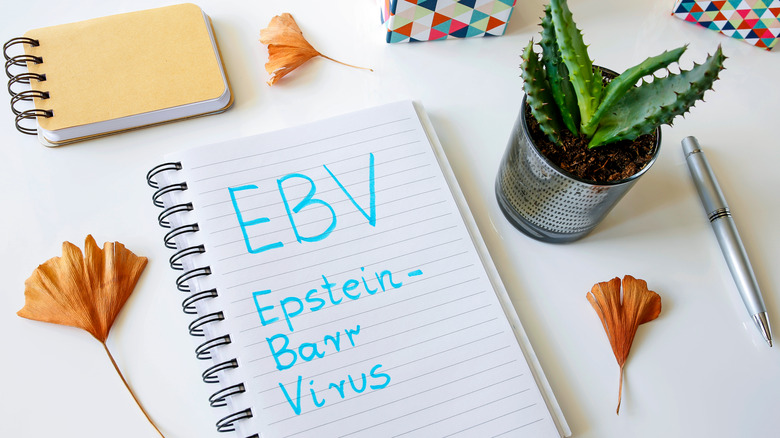How Do You Get Mono?
While mono (infectious mononucleosis) is often called "the kissing disease," it's not nearly as fun as the name might suggest. According to the Mayo Clinic, it can have a range of unpleasant symptoms, including fatigue, sore throat, fever, swollen lymph nodes, swollen tonsils, headache, skin rash, and a swollen spleen. Mono most commonly affects teens and young adults, but young children can get it too (via Cleveland Clinic). If you get it, you might be sick for somewhere between two and four weeks. Sometimes, however, people can be sick for six months or more.
You can also be infected with the virus that causes mono without even knowing it, reports WebMD. Many people are carriers of the virus, but never go on to develop any symptoms. Once you have had mono, the virus will always be present in your body. It can potentially even become active again any time your immune system is compromised, per VeryWell Health. This also means you might give the disease to someone else if you become ill again.
What to know about the Epstein-Barre virus
Rather than being one discrete disease, mono is a syndrome, or clustering of symptoms (per Current Topics in Microbiology and Immunology). According to the U.S. Centers for Disease Control and Prevention (CDC), it may be caused by one of several viruses. In about 90% of all cases, it is caused by the Epstein-Barr virus (EBV), reports the Cleveland Clinic.
EBV, also known as human herpesvirus 4, is a member of the herpes virus family and is one of the most common human viruses around (via CDC) and most people will catch it at some point during their lives. In fact, the Cleveland Clinic states that about 90% of Americans have contracted EBV by the age of 35.
Although EBV is the most common cause of mono, there are other viruses that can cause it as well. These viruses include cytomegalovirus (CMV), toxoplasmosis, human immunodeficiency virus (HIV), rubella, hepatitis A, B, or C, and adenovirus, according to the CDC.
How it spreads and how you can prevent it
The virus that causes mono is found in saliva, which means that you can catch it by kissing someone who is infected with it (via WebMD). Kissing isn't the only way it can be transmitted, however. You can also pick it up by doing things like drinking from the same glass that an infected person has used or using their toothbrush. In addition to being found in saliva, the virus is also found in blood and semen. This means that you can catch mono through sexual contact. It can also be transmitted through medical procedures like an organ transplant or a blood transfusion.
Even after you recover from mono you may still be able to pass the virus along to another person. EBV remains in your body and can become active again months or years down the line.
Unfortunately, there is currently no vaccine against mono, although there is one under investigation by the drug manufacturer Moderna. The best way you can protect yourself is by being aware of how it is spread and taking proper precautions, state the CDC. If you know someone who is infected with mono, do not kiss them, share drinks or food, or share personal items like toothbrushes. Finally, if you plan to have sex, use condoms to prevent its spread through semen or other bodily fluids.



